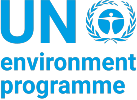17–18 February 2025 | Osaka, Japan
The world faces a growing waste crisis—from overflowing landfills and marine plastics to hazardous electronic waste. Traditional “take-make-dispose” models are no longer sustainable. Countries around the world are recognizing the need for a shift: toward circular economy approaches that prevent waste, conserve resources and build resilient, inclusive societies.
In response, the UNEP Global Dialogue on the Circular Economy Model of Waste Management was held from 17–18 February 2025 at the UNEP International Environmental Technology Centre (IETC) in Osaka, Japan. The event brought together over 200 participants from 42 countries, including 60 in person, to share innovative policies, practical solutions and bold ideas for accelerating the transition to circular waste management.
Embedding Circularity Across the Product Lifecycle
The central highlight of the Dialogue was a unified call for systemic change -a fundamental transformation of how societies produce, consume and manage materials. Participants stressed that recycling alone is not enough. True circularity requires upstream interventions such as waste prevention, sustainable design and resource efficiency, as well as inclusive governance and innovative policy frameworks that reshape the entire lifecycle of products. Only through such integrated action can the waste crisis be addressed at its root.

Local Solutions, Global Lessons
The discussions also emphasized the importance of public-private partnerships and adaptable policies tailored to each country’s context. Case studies from Australia, China, the Republic of Korea, Japan, Bangladesh, Kazakhstan, Uruguay, Brazil and the European Union showcased pathways to operationalize circularity in both policy and practice.
Building Momentum: What Comes Next
The Dialogue marks a step forward in UNEP’s commitment to tackling pollution through circularity. As part of its follow-up actions, UNEP-IETC will:
1. Clarify and communicate what a circular waste management model looks like, including its core principles and key stakeholders,
2. Support pilot activities to demonstrate circular solutions on the ground and
3. Capture and share knowledge from the Dialogue through UNEP’s platforms, enabling countries to adapt and apply solutions in diverse contexts.
“We haven’t yet fully defined what a circular economy model for waste management looks like—but this Dialogue brought us closer. Circularity isn’t just about managing waste; it’s about preventing it, redesigning our economies and amplifying the voices that are too often left behind.”
— Takehiro Nakamura, Head of UNEP-IETC
As countries and cities around the world face rising levels of waste generation, the Dialogue reinforced the message that embracing circularity is not only an environmental imperative—it is also a critical pathway through which UNEP, under its Medium-Term Strategy, supports systemic transformations for a more just, resilient and sustainable future.







